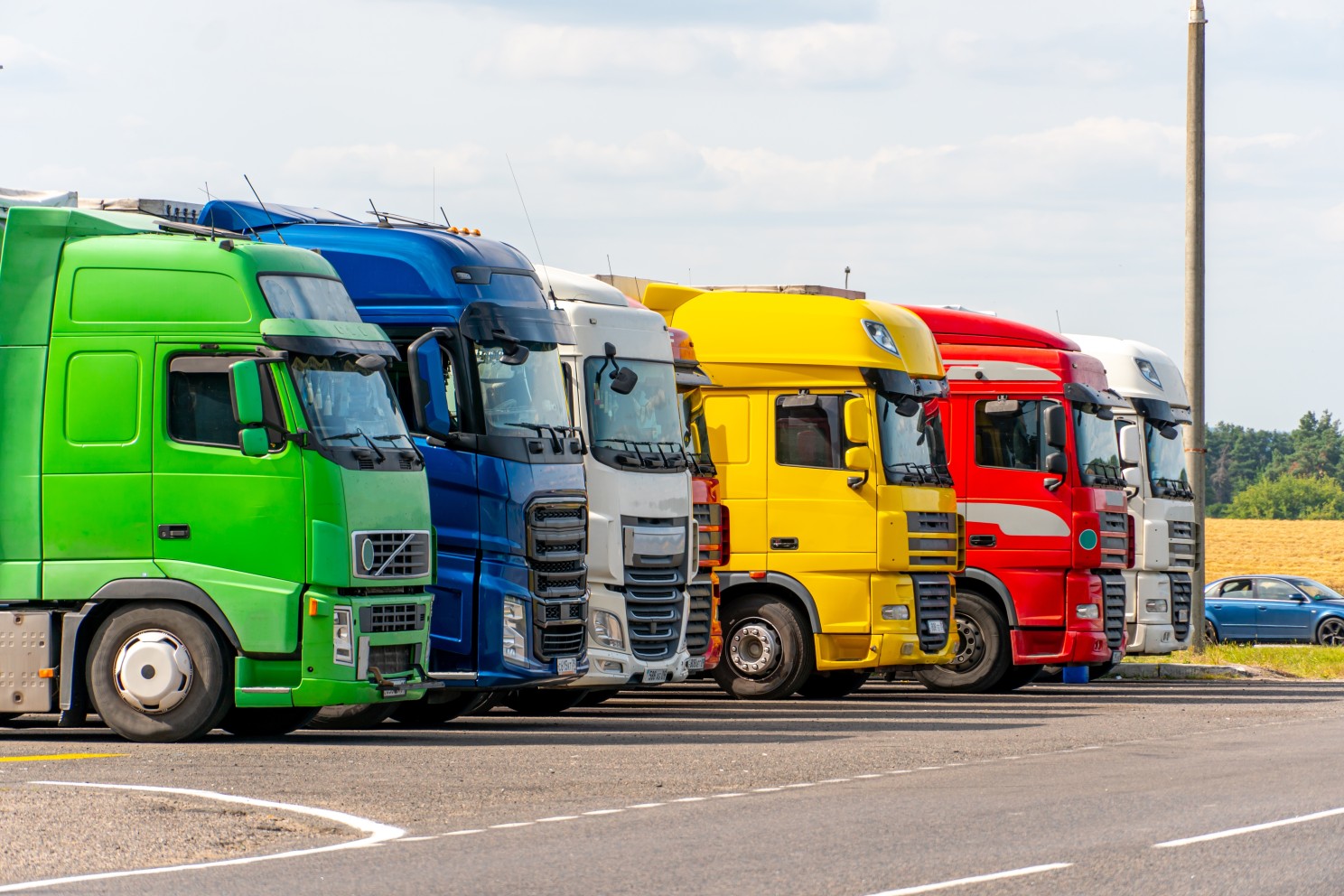
Susie Jones
Ako riešiť rozmanitosť vodičov v odvetví
Vytvorené: 21. 08. 2024
•
Aktualizované: 21. 08. 2024
Ak by sme vás požiadali, aby ste opísali vodiča nákladného auta, vaša odpoveď by mohla predstavovať stereotypný obraz staršieho, bieleho muža. Je to presné? V odvetví nákladnej dopravy tradične dominujú muži. V priebehu rokov sa toto odvetvie stalo rozmanitejším a otvorilo príležitosti pre ženy, ľudí rôzneho veku a pôvodu, aby vstúpili do tohto odboru. Rozmanitosť rastie, ale vonkajšie výzvy, ako napríklad brexit a pandémia, to sladili.
Ženy v odvetví
Napriek tomu, že v Spojenom kráľovstve chýba až 100 000 vodičov nákladných vozidiel, len 1 % až 3 % vodičov nákladných vozidiel tvoria ženy. Prečo sa teda do života na cestách nezapíše viac žien?
Bezpečnosť: Odhaduje sa, že 60 % žien - vodičiek nákladných vozidiel sa počas práce necíti bezpečne. Mnohé z nich vyjadrili potrebu parkovať pod svetlom, plánovať zastávky a nosiť so sebou paprikový sprej.
Technika a vybavenie: Ergonomicky boli nákladné vozidlá konštruované pre mužov. V minulosti ženy považovali dosahovanie na ovládacie prvky, nastavovanie sedadiel a fyzické aspekty práce za obmedzujúce. Vďaka technologickému pokroku však fyzická námaha nepredstavuje problém. Väčšina moderných nákladných vozidiel má teraz posilňovač riadenia a automatické prevodovky, ktoré uľahčujú prácu.
Napriek týmto neúspechom ženy vyjadrujú svoj názor a presadzujú zmeny v tomto odvetví. Vodiči ako Jodi Smith sú neoceniteľnými advokátmi tohto odvetvia. Jodi sa na internete delí o svoje skúsenosti s nákladnou dopravou a dokazuje, že toto odvetvie nie je len mužský svet.
"Šoférovanie nákladného auta nie je mužská práca - túto prácu zvládnem s plnou výbavou akrylátov! Je to dosť fyzicky náročné, ale nie je to ťažké," tvrdí Jodi, keď [sme s ňou hovorili v roku 2021] (https://fleetpoint.org/driver-training-safety/driver-safety-2/are-women-the-future-of-trucking/). So siedmimi rokmi skúseností za sebou sa Jodi naďalej zasadzuje za to, aby sa do komunity autodopravcov dostalo viac žien.
Výsledok, ktorý by mohol viesť k väčšej bezpečnosti na cestách - údaje Amerického inštitútu pre výskum dopravy ukazujú, že ženy sú bezpečnejšími vodičmi úžitkových vozidiel. Muži vodiči majú o 20 % vyššiu pravdepodobnosť, že sa stanú účastníkmi dopravnej nehody v porovnaní so svojimi ženskými kolegami.

Veková rozmanitosť v odvetví
Podľa údajov Národného štatistického úradu je priemerný vek vodiča nákladného vozidla štyridsaťosem rokov a 47 % vodičov nákladných vozidiel v Spojenom kráľovstve má viac ako päťdesiat rokov a chce čoskoro odísť do dôchodku. Tieto štatistiky popri súčasnom nedostatku vodičov naznačujú potrebu mladších vodičov v tomto odvetví.
To sa ľahšie povie, ako urobí; mnohí mladí vodiči čelia nasledujúcim problémom:
Školenie: Získanie vodičského preukazu na komerčné účely môže stáť až 2 000 GBP
Poistenie: Hoci je minimálny vek na vedenie nákladného vozidla v Spojenom kráľovstve 18 rokov, mnohí majú problém získať poistenie.
Skúsenosti: Niektoré spoločnosti chcú zamestnať skúsených vodičov, čo môže byť prekážkou.
Podmienky: Život vodičov nákladných vozidiel môže byť náročný - dlhé hodiny a čas strávený mimo blízkych by mohli byť odstrašujúcim príkladom. Život na cestách však prináša aj mnohé výhody, ako napríklad spoločenstvo, cestovanie, plat a stabilitu zamestnania.

Spoločnosti, ktoré hľadajú vodičov, môžu využiť možnosť zamestnať mladších vodičov nákladných vozidiel. Je pravdepodobnejšie, že sa prispôsobia neustále sa meniacemu odvetviu. Okrem toho sa rýchlo učia a vítajú technologický pokrok. Nárast počtu mladších vodičov, ktorí nastúpia do odvetvia, bude mať za následok nižšiu mieru fluktuácie, čo zníži náklady spoločnosti. Takisto sa zabezpečí, že odvetvie uspokojí rastúci dopyt po tovare a službách.
Aké sú však nevýhody pre vás, ak ste starší vodič? Niektoré názory naznačujú, že vek ovplyvňuje fyzické a kognitívne schopnosti, čo má vplyv na schopnosť bezpečne viesť vozidlo. Tie sú pre vodičov nákladných vozidiel životne dôležité, pretože sa musia vyrovnať s dlhým pracovným časom, fyzickými nárokmi a stresovými situáciami.
FMCSA sa týmito obavami zaoberala. Predpisy vyžadujú, aby starší vodiči často absolvovali lekárske prehliadky a vyšetrenia. Nedávno sa objavila správa, že 90-ročný vodič nákladného vozidla zo Sheffieldu po získaní čistého zdravotného posudku stále jazdí na nákladnom aute. Mnohí tvrdia, že starší vodiči prinášajú desaťročia skúseností a znalostí - čo naznačuje, že ak sú zdraví, nemala by existovať prekážka na zamestnanie.
Ako môže rozmanitosť vyriešiť súčasný nedostatok vodičov?
V roku 2022 poskytol Úrad pre záležitosti veteránov 100 000 libier charitatívnej organizácii Veteráni do logistiky. Táto charitatívna organizácia ponúka veteránom možnosť stať sa vodičmi nákladných vozidiel. Finančné prostriedky umožnili charite výrazne zvýšiť počet ročných školení, zvýšiť počet zamestnancov a strojnásobiť počet dostupných školení. XPO, ASDA a Muller Milk & Ingredients sú spoločnosti, ktoré aktívne zamestnávajú veteránov priamo po školení.
Okrem toho spoločnosť ASDA poskytla 40 000 GBP na pomoc pri ďalšom vzdelávaní. Podpora charitatívnych organizácií, ako sú Veteráni do logistiky, vytvára rozmanitejšiu kultúru v rámci vodičov nákladných vozidiel a zároveň aktívne rieši súčasný nedostatok vodičov.
Čo sa dá urobiť pre väčšiu rozmanitosť?
Rôznorodá pracovná sila otvára spoločnosti priestor pre rôzne názory a skúsenosti. Čo môžu spoločnosti urobiť, aby prilákali rozmanitú pracovnú silu?
Investujte do školení: Školenia zamerané na vzdelávanie zamestnancov o témach, ako sú implicitné predsudky, inkluzívnosť na pracovisku, prevencia diskriminácie a podpora rôznorodých zamestnancov, môžu mať pozitívny účinok.
Investujte do inkluzívneho procesu prijímania zamestnancov: Anonymizácia životopisu uchádzača môže znížiť nevedomé predsudky.
Podporujte inkluzívnu kultúru: Informujte potenciálnych uchádzačov o tom, ako riešite aktuálne otázky rozmanitosti a inklúzie.
Oslovte nedostatočne zastúpené skupiny v tomto odvetví.
Podpora a prijatie rôznorodej kultúry vo vodičoch nákladných vozidiel môže byť pre toto odvetvie veľmi prospešné. Nielenže to prispeje k vytvoreniu inkluzívnejšieho a priateľskejšieho pracovného prostredia, ale pomôže to aj pri pretrvávajúcom nedostatku vodičov. Dopravné spoločnosti sú zodpovedné za prijatie rozmanitosti rovnako ako vodiči nákladných vozidiel.

V ktorej krajine je dopyt po vodičoch nákladných vozidiel?
Správa zverejnená v decembri 2022 naznačuje, že v rokoch 2020 až 2021 stúpol nedostatok vodičov v Európe o 42 %. Na prvom mieste sa umiestnilo Spojené kráľovstvo, kde počet voľných pracovných miest pre vodičov dosiahol 100 000. Mexiko a Čína boli tiež vysoko na zozname, pričom v Mexiku sa nedostatok zvýšil o 30 % a v Číne o neuveriteľných 140 %.
Budeme v budúcnosti potrebovať vodičov nákladných vozidiel?
Zavedenie samojazdiacich nákladných vozidiel vyvolalo mnohé názory, že vodiči nákladných vozidiel nemajú budúcnosť. To však zďaleka nie je pravda.
Autonómne nákladné vozidlá sa budú postupne zavádzať v určených regiónoch. Pravdepodobnosť, že by sa to dotklo väčšiny vodičov, je malá.
Ak by sa autonómne nákladné vozidlá zaviedli na celom svete, stále by boli potrební vodiči. Dopyt po vodičoch nákladných vozidiel sa bude len zvyšovať, pretože existuje príliš veľa vecí, ktoré by sa mohli stať, ak by v kabíne nebol vodič.
Aké sú stereotypy vodičov nákladných vozidiel?
Vieme, aký význam majú vodiči nákladných vozidiel, ale v očiach niektorých ľudí sa s týmto odvetvím stále spájajú negatívne stereotypy - toto zobrazenie môže byť spôsobené skreslenými informáciami v médiách a niekedy aj niekoľkými neskúsenými vodičmi. Čo je však tento stereotypný obraz? A prečo je nesprávny?
Nadváha - Niektoré zastávky pre nákladné vozidlá ponúkajú nezdravé rýchle občerstvenie, ktoré by mohlo vzbudiť dojem, že ho konzumujú len vodiči nákladných vozidiel. To však určite nie je pravidlom. Stravovať sa zdravo na cestách môže byť náročné, ale mnohí sa držia vyváženej stravy a pravidelne cvičia. Pozrite si naše tipy na zdravé stravovanie na cestách.
Zlí vodiči - stereotyp, ktorý nemôže byť ďalej od pravdy. Profesionálni vodiči nákladných vozidiel berú bezpečnosť mimoriadne vážne. Často dodržiavajú povolenú rýchlosť, sú mimoriadne opatrní v nepriaznivom počasí a nechávajú si dostatok priestoru medzi sebou a ostatnými vodičmi.
Zlosť na cestách - Všetci sa na cestách hneváme a vodiči nákladných áut nie sú výnimkou. Je však nespravodlivé tento stereotyp pripisovať len vodičom nákladných vozidiel.
Všetci vodiči nákladných áut sú muži - v tomto odvetví je viac mužov ako žien, avšak počet vodičiek nákladných áut stúpa.


